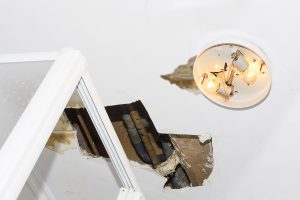 Is everything in your house covered by your homeowner’s insurance? You might want to make sure that busted pipes and the resultant flood damage are written into your policy – because water damage can be costly. Some companies charge extra for flood and water insurance.
Is everything in your house covered by your homeowner’s insurance? You might want to make sure that busted pipes and the resultant flood damage are written into your policy – because water damage can be costly. Some companies charge extra for flood and water insurance.
Broken or bulging pipes may not be noticeable and not all of them can be easily inspected for cracks or other issues. Even the smallest of cracks can lead to a major leak. Water damage from a faulty pipe is the second-most-filed insurance claim in the country. Check to see if your homeowners’ policy covers plumbing repairs.
RELATED: How to prepare your outside faucets for winter
Here are a few things you should be aware of when it comes to your pipes. You might have faulty plumbing:
- If you hear bubbling, whistling, clanking or gurgling when you flush a toilet or use the sink – all of these noises could mean trouble with a broken pipe is near.
- If you smell strange odors, it’s a possibility that sewage isn’t transporting properly through your home’s plumbing system and meaning there is a problematic pipe. If water from your faucets has an unpleasant odor, pipes could be corroded. In both cases, it’s time to call a professional.
- If there is discoloring on walls or ceilings. Take a look at your home. Are the walls or ceilings discolored? Damp drywall or ceiling tiles become discolored from water damage, which can mean you have a leak somewhere near the discoloring.
Other signs of plumbing issues include a higher-than-usual water bill, frequent backups and clogs, and low water pressure throughout your home.
Be sure to do proper maintenance on your pipes to prevent cracks and leaks. Freezing temperatures can do the worst damage. Preventive measures during cold weather include draining sprinkler systems, pools and hoses and shutting off outdoor water valves. You also can check for exposed pipes in unheated areas of your home, insulate hot and cold water pipes, and try to keep heat in by keeping the garage door closed during winter.
RELATED: Why plumbing leaks can attract pests and what you can do about it
In most cases, burst pipes are covered by a standard homeowners’ insurance policy. However, if a pipe bursts after you failed to do needed maintenance, the damage may not be covered. You also may want to check that your insurance covers both the water damage and the necessary funds to repair the pipe. Insurance doesn’t usually cover normal wear-and-tear on a home.
It’s always best to talk to your insurance company to make sure you are aware of what is or isn’t covered by your homeowner’s policy.
Other Articles That Might Interest You
How to fight mold and mildew in the bathroom
What are the biggest mistakes in DIY plumbing?
Understanding drain clogs and how to prevent them
